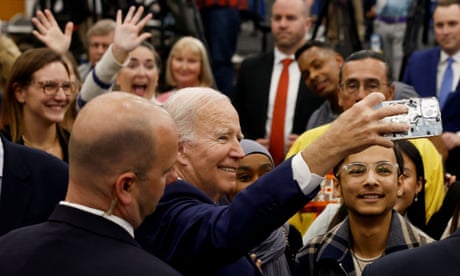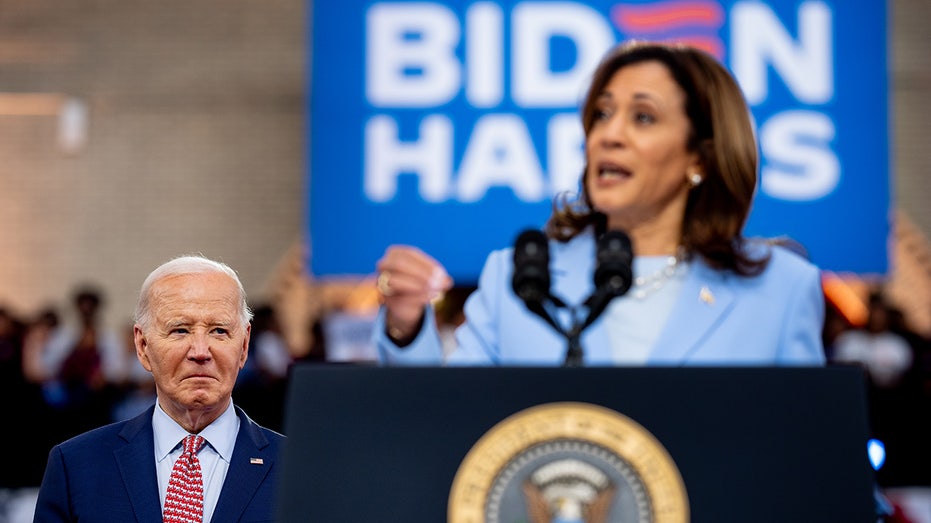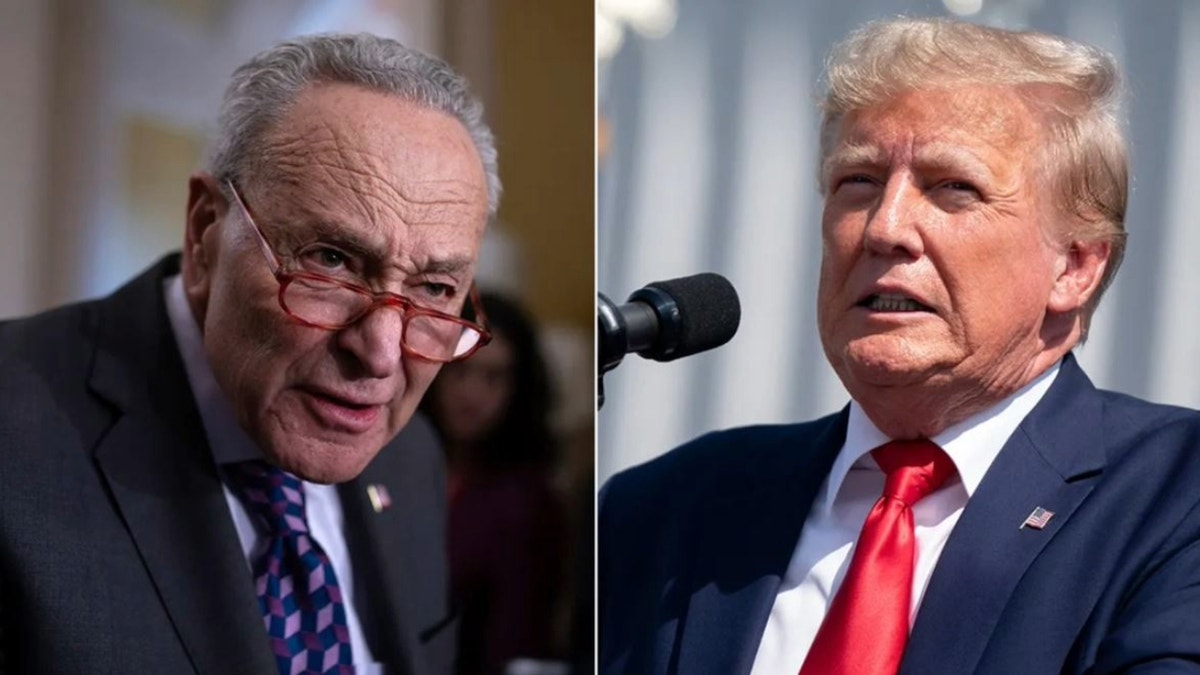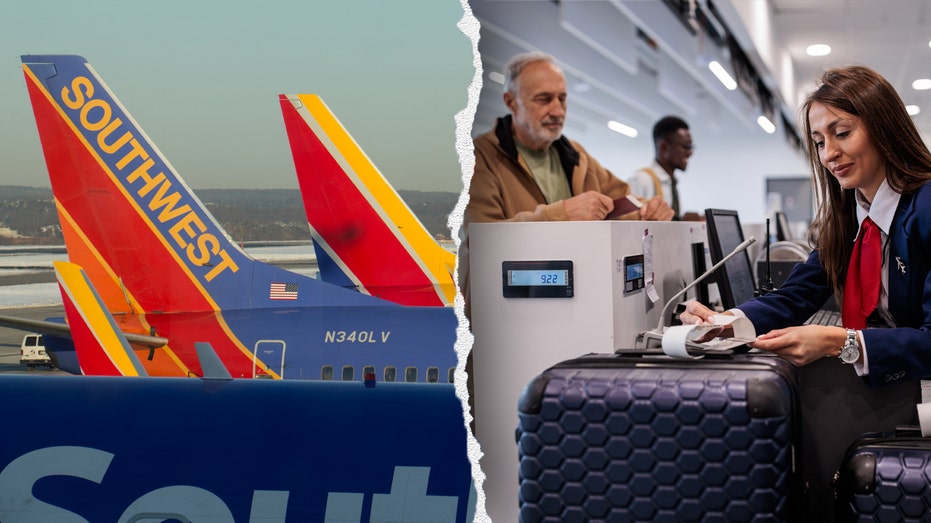- by foxnews
- 14 Mar 2025
Democrats insist Joe Biden’s low midterms profile is smart strategy
Democrats insist Joe Biden’s low midterms profile is smart strategy
- by theguardian
- 01 Nov 2022
- in news

Music, chants and applause filled the gymnasium of a community college in an upstate New York battleground district, where Joe Biden delivered Democrats' closing economic argument of the midterm election season.
The president acknowledged Americans' struggle to cope with painfully high inflation, while touting the progress his administration had made toward a post-pandemic recovery. He closed his remarks with a stark warning: if Republicans win control of Congress, they would create "chaos" in the economy. Then he waded into the crowd to shake hands and snap selfies.
While the visit had some of the trappings of a traditional campaign rally, it was, like much of Biden's recent travels, an official event - an understated finish to a campaign season the president has described as the "most consequential" of his political life.
In the final days before the 8 November election, Biden will ramp up his campaign trail appearances, with plans to visit Pennsylvania, Florida, New Mexico, California and Maryland to stump for Democratic candidates.
But his relatively low profile is part of a concerted strategy designed for an unpopular president in a challenging election year.
"To the extent he's less visible, and maybe even invisible, it's a plus for Democrats because it lets the candidates run their own campaigns on their own issues," Larry Sabato, director of the Center for Politics at the University of Virginia. "Out of sight, out of mind."
On the line this November is not only control of Congress. The outcome will also have far-reaching implications for Biden's presidency - and his legacy. And Biden believes the stakes are even higher for American democracy.
"If we lose this off-year election, we're in real trouble," Biden told supporters at a private fundraiser in Philadelphia for the Senate candidate John Fetterman last week.
The violent assault on House Speaker Nancy Pelosi's husband, Paul Pelosi, only underscored the danger of elevating candidates who embrace election conspiracies as several Republican nominees for state and federal office have done, Biden said.
"What makes us think one party can talk about stolen elections, Covid being a hoax, [that it's] all a bunch of lies, and it not affect people who may not be so well balanced?" Biden asked, in urgent remarks at the annual Pennsylvania Democratic Party's Independence dinner on Friday. "What makes us think that it's not going to alter the political climate? Enough is enough is enough."
Historical trends and current polling point to a Republican takeover of one or both chambers of Congress, an outcome that would greatly, if not entirely, curtail Democrats policy ambitions on abortion, gun control, voting rights and healthcare reform.
The White House has defended Biden's travel schedule, noting that he has been on the road almost nonstop in recent months to promote the party's agenda and draw a sharp contrast with Republicans.
"When the president speaks, he has a large bully pulpit," White House Press secretary Karine Jean-Pierre told reporters. "And he has been able, in the past several weeks, to set that national conversation."
With few exceptions, presidents tend to enter the midterm elections less popular than when they entered office, and it is not unusual for candidates to seek distance from an unpopular party leader during an election year.
Yet Biden, who relishes the rope line and retail politics, has cut a more discreet presence on the campaign trail than either Trump or Obama, both of whom saw their approval ratings fall during the first years of their presidencies.
While Biden has nearly kept pace with his predecessors' travel, he has held notably fewer campaign rallies than either Obama or Trump, according to data collected by Brendan Doherty, author of The Rise of the President's Permanent Campaign.
The White House chief of staff, Ron Klain, has said Biden's decision to eschew large rallies was a strategic choice, not simply a reflection of Biden's low approval ratings.
"I don't think rallies have proved effective for candidates in the midterms," Klain said recently on a CNN podcast, noting that in both 2010 and 2018 the party in power lost control of the House despite a campaign blitz by the president.
"I don't think it should surprise anyone that we're not using the strategy that failed in 2010, and the strategy that failed in 2018," he said.
There is little evidence that presidential visits help turn out voters and in fact, they can have the unintended effect of mobilizing the opposition, said Sabato, who called concern over Biden's relative lack of campaign appearances "much ado about absolutely nothing".
Moreover, he said campaign stops involving a president are costly affairs that require time and money of candidates, often the ones with the least resources to spare.
"Is it really worth it?" Sabato asked. "Frequently, the answer is no, especially when a president is not popular."
Biden's travel so far has largely taken him to states where Democrats believe his political power will boost their candidates, like his western swing through Colorado, California and Oregon. That has allowed Democrats in some of the most competitive races create some distance from the president.
In Ohio, a state Trump won twice, Tim Ryan, the Democratic congressman running for an open Senate seat, has avoided Biden, saying he preferred to "be the face of this campaign". Though earlier this month, Ryan welcomed a visit to the state by the West Virginia senator Joe Manchin, a centrist Democrat who has staked his reputation on bucking his party.
Biden's relatively cold reception this midterm cycle stands in stark contrast to four years ago, when he was among the party's most sought-after campaign surrogates. That year, he jetted across the country to rally support for Democratic candidates in corners of the country where others in his party were not welcome. His enduring appeal among voters in states that Trump won in 2016 became a central part of his pitch to Democrats in 2020.
As president, Biden has made light of his predicament. In speeches, he's told candidates: "I'll come campaign for you or against you - whichever will help the most."
In the closing days of the campaign, Biden's immediate predecessors are barnstorming the states that will determine which party controls Congress, governors' offices and statehouses.
Over the weekend, Obama began a five-state tour that took him to the battleground states of Wisconsin and Michigan and Georgia, where he implored weary Democrats to "resist the temptation to give up". In the coming days, he will also visit Nevada, Arizona and Pennsylvania, where he will appear alongside Biden.
And last week Trump announced a five-day swing through the swing states of Florida, Pennsylvania, Ohio and Iowa.
Several high-profile Republicans have embarked on the campaign trail, inviting speculation about their ambitions for 2024 while rallying their party's base. Governors Ron DeSantis of Florida and Glenn Youngkin of Virginia have all appeared at events on behalf of Republican candidates, along with former governor Nikki Haley of South Carolina, Senator Ted Cruz and other conservative figures.
On the Democratic side, the House speaker, Nancy Pelosi, has been a presence on the campaign trail, rallying voters in an effort to save the party's slim majority. Democratic senators and 2020 presidential candidates Elizabeth Warren, a progressive from Massachusetts, and Amy Klobuchar, a moderate from Minnesota, have targeted races where their respective political brands might help sway voters.
And on Friday, Senator Bernie Sanders, an independent of Vermont, held a rally for progressive candidates in Texas, the start of a multi-state tour to mobilize young people disillusioned by the slow pace of progress in Washington.
Biden's cabinet members have also been on the road, talking about the administration's policy initiatives on infrastructure, drug prices, student debt and climate change. Collectively, they have made 77 trips to 29 states and Puerto Rico, according to a senior administration official. A majority of the events were focused on inflation and the economy while nearly a dozen were designed to highlight new infrastructure projects.
Harris recently traveled to New Mexico to support Governor Michelle Lujan Grisham, who is up for re-election, and to emphasize the stakes for reproductive rights this election. During an event at a college campus in Albuquerque, the vice-president said New Mexico had become a "safe haven" for women seeking abortions in the region. She then went to Seattle, Washington, where she announced $1bn in grants for electric school buses.
On Wednesday she will hold a rally in Boston to rally support for the Democratic ticket.
Jim Kessler, the executive vice-president for policy at the center-left thinktank Third Way, said the political landscape had changed dramatically in recent election cycles. Much of the campaign activity has moved online and pandemic-era changes to states' voting systems have turned election day into "election weeks".
With millions of votes already cast, Kessler said Democrats and the White House should focus on the most effective ways to sway the small number of undecided voters and turn out those who are not politically engaged - groups that are unlikely to attend a campaign rally.
In Kessler's view, the venue matters less than the message, and the message must be relentlessly focused on the economy and the clashing visions the parties have for the country's future.
"In the time that you have left, you draw a contrast - talk about what you're going to do and what they're going to do," Kessler said, adding that Democrats have a strong case to make on the economy. "We just saw an experiment on the Republican plan on the economy in Britain and it lasted as long as a head of lettuce. It was a disaster."
After casting an early ballot in his home state of Delaware on Saturday, Biden said he was optimistic about the elections and was ready to hit the trail this week.
"I'm going to be spending the rest of the time making the case that this is not a referendum," he told reporters outside the polling station. "It is a choice - a fundamental choice between two very different visions for the country."
- by foxnews
- descember 09, 2016
Southwest flyers fire back over airline ending free checked bag policy: 'Nail in the coffin'
Southwest has customers sounding off after the airline announced an end to its checked bag policy, leading some flyers to say they'll "boycott" the airline.
read more


